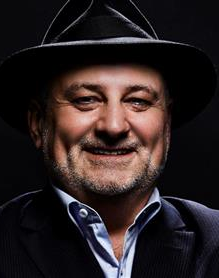The Australian Council of Professions is celebrating 50 Years of thought leadership and advocacy for professional associations and their member professionals.
Since the mid-1960s, there had been state-based interest and activities to coordinate and support the various professional associations.
In October 1970, the professional associations in New South Wales, Victoria, Queensland and South Australia discussed the benefits of establishing closer working relations and agreed “that a Federal Council of Professions be formed and that immediate steps be taken to implement this decision.”
As a result, on 12 November 1971 the ‘Australian Council of Professions’ (ACoP) was constituted – the main objects being “to maintain and advance the standards and status of the professions in the community generally and to uphold and advance the honour and reputation of the professions and the integrity and standing of the members thereof.” Since that day, ACoP has passionately lobbied and advocated for the Professions, their Professionals and their Professionalism.
ACoP’s approach supporting the concept of professionals was described by our inaugural President The Hon Dr Derek Freeman MLC in a 1972 letter to then Prime Minister McMahon as follows: “The Australian Council of Professions represents 60,000 professional persons who are generally regarded as opinion leaders in the community; who, as a group, make a major contribution to the quality of living …”
In 1994 the ‘public good’ character of ACoP is formalised by adding “to promote the interests and welfare of the Australian community through the combined influence and expertise of the professions” to the objects.
From 2002 to early 2017 ACoP trades under the business name ‘Professions Australia ’.
In March 2016 ACoP signs a Joint Statement of Principles for Professional Accreditation with Universities Australia – a landmark agreement that delivers greater clarity on the respective roles of universities and professional accreditation bodies. It quickly becomes the foundation for many accreditation programs and so helps ensure graduates are best qualified for the professions they enter.
We held the inaugural National Summit on Micro‐Credentials in March 2019.
As the COVID-19 Pandemic starts to affect the education of professionals in Australia and around the world, ACoP initiates, facilitates and publishes a Joint Statement of Principles to mitigate the impact of COVID19 on teaching, learning, assessment, placement and graduate mobility. Education Minister Tehan and TEQSA support the publication.
Based on the experience of how the public and governments trust the Chief Medical/Health Officers as professionals providing science-based, ethical and responsible thought-leadership, ACoP declares 2021 as “The Year of the Professions, Professionals and Professionalism“. 

A global first, ACoP created the Chief Professionalist position – inspired by the highly valued Chief Medical/Health Officers, the Chief Scientist, Chief Economist, the Chief Engineer, Chief Data Scientist, etc. – and in April 2021 appointed Professor Deen Sanders OAM.
A Professionalist is “one who professionalises an occupation” (Merriam-Webster) and who is “an advocate of professionalism” (Oxford English Dictionary).
In response to concerns that some public statements appear to undermine the confidence in Australia’s leading vaccination and health advice, our Chief Professionalist publicly calls for less blame shifting and more listening…
We have become a global authority on the definitions of Professions, Professionals and Professionalism. Our “What is a Professional” web page receives over 400,000 visits each month and is widely cited.
Past ACoP Presidents include The Hon. Dr Derek Freeman AM MLC, Michael O’Sullivan QC, Peter Davidson AM, Prof. Peter Johnson AC, G A Murphy AM, Dr H Lindsay Thompson AM, Dr John Southwick, Joycelyn Morton FCA FCPA FIPA FCIS FAICD and Brenda Aynsley OAM.
Past ACoP Patrons include His Excellency the Hon. Sir William Deane AC KBE and His Excellency the Hon. Bill Hayden AC (Governors-General of the Commonwealth of Australia).